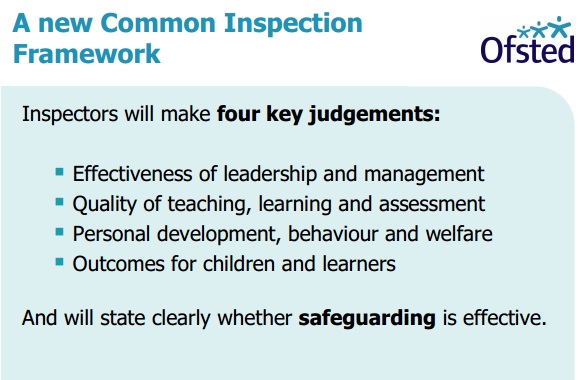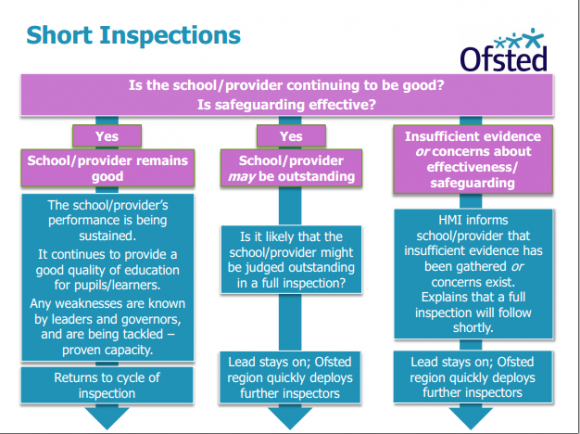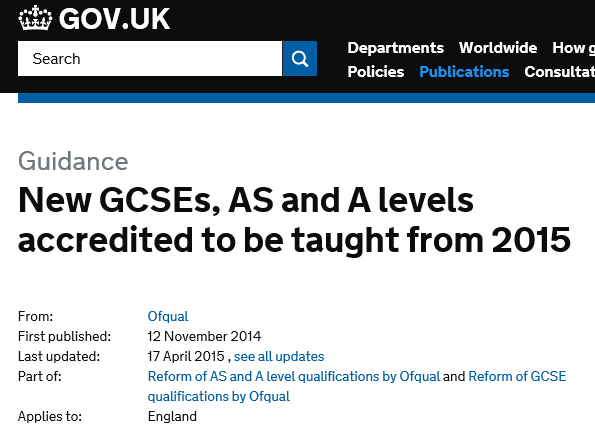I am here in Portsmouth, listening to Sir Robin (Regional Director, South East and also currently Director, Quality and Training). I listened to Robin outline the need for “honest, challenging and professional dialogue.” Conversations that will clearly emphasise leadership. Have the leaders got a grip on their institution? Do they communicative their strategy for raising achievement. Are they prepared to challenge mediocre teaching? Do leaders refuse to accept excuses? Interestingly, given Sir Micheal Wilshaw’s comments, there was no steer on challenging parents and carers to be more involved in their children’s lives. Are leaders developing a calm, orderly and aspirational vision for the school? Are leaders focused on what benefits the young people at their institution? Do they go the extra mile to support disadvantage pupils. What Robin later referred to shining a spotlight on under-achievement.
It is worth noting that the “Quality of Leadership” is the key judgement. Leaderships at all levels. Leadership of school leaders, governors and managers. Ofsted will “credit effective leadership” even in spite of weaker evaluations by the leadership of the school of key areas of school. There should be “no threat to identifying weaknesses, though effective plans to address these.”
I listened carefully, as with softer tones, he reassured the audience that Ofsted is being more reflective, responsive and adaptive. Here he outlined the increased number of good and outstanding practitioners from the workforce serving as inspectors (7/10 are serving practitioners), that outsourcing has ended (to bring greater quality and consistency inspection), the opening of the complaints process, a complaints process review committed whose judgements will be binding to Ofsted. Finally, that Ofsted are looking for System Leaders – teachers who are taking risks, putting themselves out, need to be celebrated.
Short Inspections
Jo Hall provided a full overview of Short Inspections, the second key reform. The associated resource clearly outlines the three routes. Recognition for the bilateral options (may be outstanding / insufficient evidence or concerns) should go to our professional bodies that prompted this inclusion.
Questions and Answer
The panel made the steer on the use of data within inspection. Ofsted will be focus on the schools data. A focus on “progress of pupils in your school’s data, and of pupil groups.”
The title of this post, notes the clear and purposeful avoidance (in my humble opinion) of the use of “Outstanding” and the deliberate use of “good, and better than good.” Interesting. Why would the panel not use the phrase “Good and Outstanding?”
[qr_code_display]



